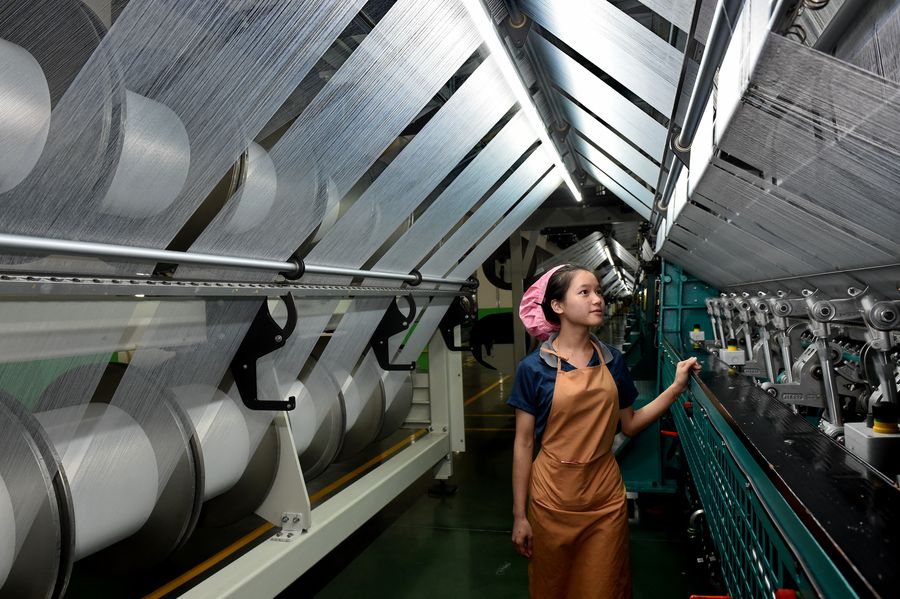
A worker checks the shoe-making materials at a workshop in Putian, southeast China's Fujian Province, Dec. 21, 2018. (Xinhua/Zhang Guojun)
China's top political advisor Wang Yang called for continuous efforts to guide private enterprises to allocate more poverty-relief resources to areas of extreme poverty.
BEIJING, Oct. 21 (Xinhua) -- China's top political advisor Wang Yang on Monday called for efforts to guide the country's private enterprises to make more contributions to building a moderately prosperous society in all respects.
Wang, a member of the Standing Committee of the Political Bureau of the Communist Party of China (CPC) Central Committee and chairman of the National Committee of the Chinese People's Political Consultative Conference, made the remarks at a seminar held by the United Front Work Department of the CPC Central Committee to mark the 25th anniversary of the launch of the "Guangcai Program."
The program was launched in 1994 by China's private enterprises in a bid to aid the country's poverty-relief efforts.
Lauding the achievements it has made over the past 25 years, particularly since the 18th CPC National Congress in 2012, Wang said the program has explored new ways of poverty alleviation, enriched the Chinese-style theories and practices for poverty alleviation, and offered Chinese models and solutions for global poverty reduction.
Noting that China still has challenging tasks ahead in achieving common prosperity, Wang called for continuous efforts to guide private enterprises to allocate more poverty-relief resources to areas of extreme poverty.
Efforts should be made to make sure the ongoing poverty-relief projects achieve expected results and to consolidate the results of the finished projects, Wang said.
Wang called on governments to fulfill their duties to implement preferential policies to support private enterprises' participation in poverty alleviation.
He also called on united front work organs to summarize and promote local experiences and improve related mechanisms to ensure the sustainability of the "Guangcai Program." ■



